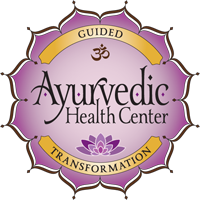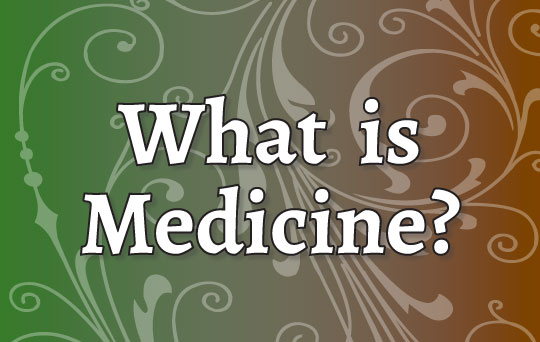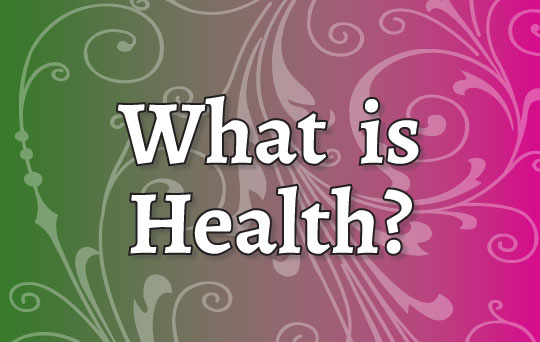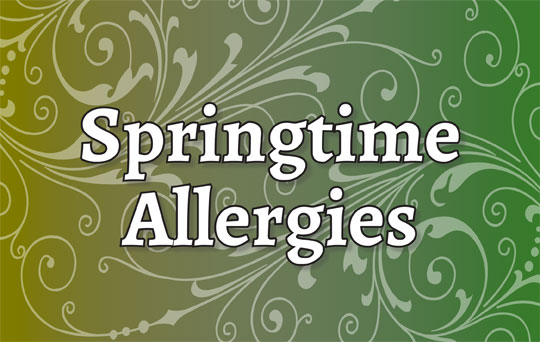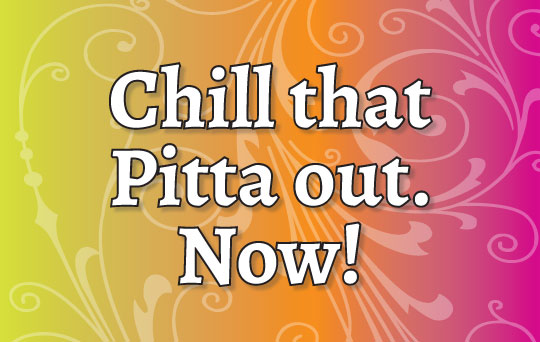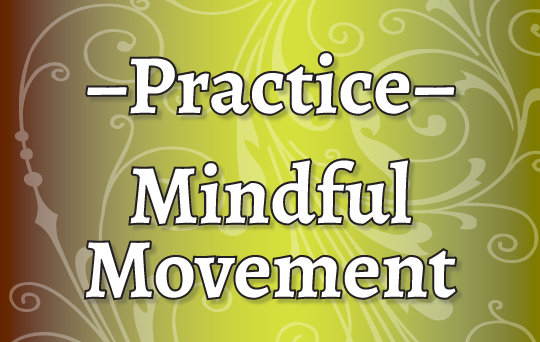 Stress: What is it?
Stress: What is it?
According to Wikipedia, “physiological or biological stress is an organism’s response to a stressor such as an environmental condition or a stimulus. Stress is a body’s method of reacting to a challenge. According to the stressful event, the body’s way to respond to stress is by sympathetic nervous system activation which results in the fight-or-flight response. In humans, stress typically describes a negative condition [distress] or a positive condition [eustress] that can have an impact on a person’s mental and physical well-being.”
“Walter Cannon [first] used [the term “stress”] in 1926 to refer to external factors that disrupted what he called homeostasis. But ‘…stress as an explanation of lived experience is absent from both lay and expert life narratives before the 1930s’.”
Thus, “stress” is a relatively new part of the human vocabulary in relation to the ideas of health and wellness.
Signs of Stress
The signs and symptoms of stress may be cognitive, emotional, physical, and/or behavioral.
| Cognitive Symptoms | Emotional Symptoms | Physical Symptoms | Behavioral Symptoms |
|---|---|---|---|
| memory problems | moodiness | aches and pains | eating more or less than usual |
| inability to concentrate | irritability or short temper | diarrhea and/or constipation | sleeping too much or too little |
| poor judgment | agitation, inability to relax | increased frequency of urination | isolating oneself from others |
| pessimistic approach or thoughts | feeling overwhelmed | indigestion | procrastinating or neglecting responsibilities |
| anxious or racing thoughts | sense of loneliness and isolation | changes in blood glucose levels | using alcohol, cigarettes, or drugs to relax |
| constant worrying | depression or general unhappiness | nausea, dizziness | nervous habits (e.g. nail biting, pacing) |
| chest pain, rapid heartbeat | |||
| loss of sex drive | |||
| frequent colds and illness | |||
| irregular menses |
Why Should We Minimize Stress?
The links between stress and mild to severe disease has become clear in recent years.
from medicinenet.com: “There is now evidence that points to abnormal stress responses as causing various diseases or conditions. These include anxiety disorders, depression, and substance abuse. Stress can affect virtually any organ system, being associated with conditions as diverse as skin rashes, high blood pressure, cardiovascular disease, certain gastrointestinal diseases, some cancers, and even the process of aging itself. Stress also seems to increase the frequency and severity of migraine headaches, episodes of asthma, and fluctuations of blood sugar in people with diabetes. There also is scientific evidence showing that people experiencing psychological stress are more prone to developing colds and other infections than their less-stressed peers. Overwhelming psychological stress (also called trauma) can cause both temporary (transient) and long-lasting (chronic) symptoms of a serious psychiatric illness called post traumatic stress disorder (PTSD).
“Uncontrollable, unpredictable, and constant stress has far-reaching consequences on our physical and mental health. Stress can begin in the womb and recur throughout life. One of the potential pathological (abnormal) consequences of stress is a learned helplessness that leads to the hopelessness and helplessness of clinical depression, but in addition, many illnesses, such as chronic anxiety states, high blood pressure, heart disease, and addictive disorders, to name a few, also seem to be influenced by chronic or overwhelming stress.
“People under chronic stress are more likely to develop addictions and have a greater tendency to engage in unhealthy behaviors such as overeating, smoking cigarettes, and excessive use and abuse of alcohol and drugs.”
It should be clear by now that it is to our great benefit to do whatever we can to minimize the effects of stress. It is unrealistic to expect that we can avoid stress altogether, but we can increase our resilience to it, and we can put practices in place to help us cope with it well.
What Can We Do?
We all have a certain amount of a resilience within us. We can think of it as being like a bank—that is, we can add to our storehouse of resilience, and we can take away from that same storehouse. We can never put in enough equity, but we can certainly over-draw and even deplete our reserves.
In a nutshell, a large aspect of managing stress is managing our reserves of resilience: making sure we have enough reserves in place and minimizing the number of times that we make withdrawals along with minimizing the size of withdrawals we make.
Ojas
Ojas is a central concept to Ayurveda. Ojas acts as a container and reservoir for our life force. Ojas is the sum-total of each person’s immunity and as such strengthens our defenses and improves our ability to effectively respond to changes and stressors in our environment. If it is strong and abundant, Ojas can support balanced health and well-being; if it is depleted, Ojas is unable to help us weather the stresses of life.
Ojas is a very refined body tissue. It takes roughly 1000 bites of food to produce 1 drop of blood. It then takes roughly 1000 drops of blood to produce 1 drop of Ojas. That’s some potent stuff! It’s easy to understand why it can be a struggle to regain health and wellness once Ojas is depleted; it will take some time and effort to build a reserve of Ojas back up.

Formation of the Tissues (Ayurvedic perspective)
Our modern culture is quite Ojas-depleting, as shown in this chart.
| Ojas is reduced by: | Ojas is supported by: |
|---|---|
| a compromised immune system | under proper direction, utilizing appropriate therapies to restore and maintain balance |
| overwork, worry, and stress | stress reduction |
| excessive stimulation | taking time in nature |
| excessive travel, especially by air | performing daily appropriate exercise |
| excessive physical, mental, and emotional output | doing activities that are deeply enjoyable |
| not taking in nourishing foods | eating appropriate and nourishing foods |
| inadequate hydration | adequately hydrating |
| insufficient rest | resting the mind and body |
These means of support pay dividends over time—and they are cumulative. Doing something is better than doing nothing. Do what you are able to, and then do more when you have the means at your disposal. Your health and well-being will thank you for it.Fortunately for us, the work that we can do to support ourselves and to restore our bank account of life force (Ojas), is clear, common-sense, and do-able—for all of us. You may not have a forest behind your house that you can lose yourself in, but you can nurture a houseplant. You can park you car at the farthest parking lot reaches from the store entrance. You can buy the highest quality foods your pocketbook will allow—and savor them.
Resting the Mind and Body
Adequate rest is an important part of daily living. We all need time to relax and regroup. Many studies have been—and are continuing to be done—around the importance of sleep and rest.
Some of the negative impacts of inadequate sleep/rest include: fatigue, bad mood, and lack of focus. Regularly receiving less than optimal levels of sleep/rest is associated with long-term health consequences, including chronic medical conditions such as diabetes, high blood pressure, and heart disease; these conditions may lead to a shortened life expectancy.
Recommendations around what constitutes adequate sleep are between 8-10 hours per night; this differs among different individuals. For some, napping is essential; for others an extra long night’s sleep once a week is helpful. Many people do well with consistent bed- and rising-times.
Taking Time in Nature
More and more studies are being conducted—in both the United States and from Japan—that document the many benefits we derive by spending time in nature. This can—and probably should be—a low-key, relaxed kind of activity, ie: hanging out without an agenda, allowing the body, mind, and all five senses to wander where they are called and to take in whatever might come along.
Studies show that what the Japanese call “forest bathing” lowers blood pressure, restores good mood, decreases stress hormone levels, boosts immune function, increases cognitive function, and increases red blood cell production, allowing more oxygen to be circulated to all the cells of your body. Read this well-done article from Outside magazine for more information.
Being close to water has also been documented to calm, soothe, and lift spirits.
We all know that skin exposure to sunlight allows the skin to create vitamin D. This allows calcium absorption to take place, helping to increase bone strength and density. What also takes place is transmission of the sun’s particular light along the optic nerve to the pineal gland, located in the center of the brain. The pineal gland regulates our circadian rhythms, regulating our sleep–wake cycles and influences serotonin, which is a hormone associated with feelings of well-being and happiness.
When you combine time in nature with exercise, you get an extra bonus: reduced fatigue, less anxiety, reduced hostility, as well as improved muscular endurance and tone.
Doing Activities That Are Deeply Enjoyable
We all need forms of nurturance: times when we are taken care of, given to, and valued. We can receive these gifts from others; we can give them to ourselves. Engaging in activities that we find deeply enjoyable is highly restorative and brings about the state of “Flow” that Mihaly Csikszentmihalyi so well explored in his book “Flow: The Psychology of Optimal Experience”.
“Flow” is described as a “state of concentration or complete absorption with the activity at hand and the situation. It is a state in which people are so involved in an activity that nothing else seems to matter… where the person is fully immersed in what he is doing. This is a feeling everyone has at times, characterized by a feeling of great absorption, engagement, fulfillment, and skill—and during which temporal concerns (time, food, ego-self, etc.) are typically ignored Every action, movement, and thought follows inevitably from the previous one, like playing jazz. Your whole being is involved, and you’re using your skills to the utmost.”
The Importance of Exercise
The importance of getting regular (ie: daily) appropriate exercise can not be overstated as a means for supporting Ojas and for bringing Prana (life-force energy) into the entire body and being.
Exercise forces the body to circulate blood through the entire organism, bringing in fresh oxygen to every cell along the way as well as moving waste products out, including those unwanted pounds and inches.
Exercise also forces the transfer of glucose into the cells, delivering a much-needed source of energy to each cell’s mitochondria. This brings a decrease in blood-glucose levels.
By placing a demand on the physical body, exercise creates a reciprocal need for the body to recover and rest, thus promoting a good night’s sleep.
Lastly, exercise stimulates the release of endorphins. Endorphins are neurotransmitters and painkillers. They are “produced by the body to control, suppress, or diminish the perception of pain. Endorphins also trigger a positive feeling in the body, similar to that of morphine. The body’s natural pain-control response helps us deal with stress… Studies on the cause–effect relationship between exercise and stress strongly suggest that physical activity helps the brain cope with and respond to stress. In terms of stress management, physical activity as simple as a daily walk is a small but powerful weapon against stress.” (medicinenet.com)
Breathing Exercises
It has been demonstrated that in addition to all of the benefits listed under “The Importance of Exercise,” above, engaging in regular breathing exercises such as Pranayama will positively impact health and wellness.
A recent article furthered this fact by demonstrating that as people lose weight, the weight is converted to carbon dioxide and water, which we primarily expel from the body with each exhalation. Thus, developing a regular practice of breathing exercises that uses the full capacity of the lungs not only brings oxygen and life-force into ourselves, but is also instrumental in managing body weight.
A simple breathing exercise is available here.
Right Eating and Hydration
Adequately hydration is of immense importance. We often discount it or think it is the exclusive province of professional athletes. However, ~70% of our bodily tissues are composed of water; hydration is therefore very important to all of us. Recommendations are for taking in half a person’s body weight in ounces of liquids, daily. This excludes coffee, caffeinated tea, and juice, which tend to actually take water out of the body, rather than put it in. What does this translate to, in real life? If you weigh 150 pounds, you should drink 75 ounces (a little over two quarts) of water or herbal tea each day (150/2 = 75).
“Right Eating” is a topic open to much debate, as fad diets rage around us and food industry-sponsored nutritionists push competing agendas. Besides visiting an Ayurvedic practitioner to learn more about your own unique constitution and what foods are most appropriate to you, Michael Pollan has said it very well:
“Eat food. Not too much. Mostly plants.”
“Don’t eat anything your great-grandmother wouldn’t recognize as food.”
“Don’t eat anything incapable of rotting.”
Utilize Appropriate Therapies To Restore And Maintain Balance
Our Western culture teaches us that it is a sign of weakness to ask for help; we are all supposed to be such rugged individuals. It is, however, in reality, a virtue and a strength to seek help when you need it. None of us is capable of going it alone; that is the province of wild and solitary pandas. Life is too intense; our bodies’ physiology is too complex; and we are often too mired in our busy-ness to clearly perceive what might be of most benefit to us. Please seek out proper care and appropriate treatment when you need it. There are many modalities available; at least one is certain to be the correct one for you. A life well and enjoyably lived is much preferable to one suffered and struggled through.
—>Movement
Movement of any kind is beneficial. Even simple, gentle forms such as walking, Yoga, and Tai Chi bring benefit, particularly when done over time; the results are cumulative.
—>Yoga Nidra
Yoga Nidra is a form of guided imagery meditation. Yoga Nidra allows the brain to shift into a state of “passive awareness” where the so-called monkey-mind takes a break, where the hamster gets off of the wheel, and where the chatter stops chattering. This is a deeply restorative resource and is being shown to be highly effective for people who experience stress from everyday life as well as for people who have chemical dependency, chronic pain, insomnia, anxiety, depression, and PTSD. There are many versions/recordings of Yoga Nidra available in the marketplace. I particularly enjoy Richard Miller’s Integrative Restoration (aka iRest).
—>Floating
I can’t say enough about the practice of floating: floating in a solution of epsom walt water inside of an enclosure that decreases your sensory input and allows your brain and body to come to a place of deep stillness for 60–90 minutes. This seemingly innocuous modality is potent stuff; many on-going studies document floating’s seemingly effortless ability to help with addiction, anxiety, PTSD, and the more ordinary stresses of daily life.
Stress Reduction
All of the practices listed in this article will help mitigate stress, but only the actual reduction of stressors—along with minimizing your response to those stressors—will make much overall headway in having, building, and maintaining health and wellness.
You can do all of the wellness-promoting activities you like, but if you are still going to engage in the same depleting activities, allow your buttons to be pushed, and respond to irritants in the same manner, you’re not making much headway. You do have a choice in how you respond to events in life; you can choose to remain unflappable; and you can choose how you spend your time and energy and whom with.
My advice: consider what you are doing and why/how you are doing it. If something doesn’t serve you, avoid it. If you are able to do something better, do so. If something undesirable happens anyway, take it in stride and explore what you might learn from it. The vast majority of people have no malicious intent; they are just as beleaguered and distracted as you are. Try cutting them some slack, and acknowledge when someone does the same for you. Cultivating an appreciation for the grace, beauty, and wonder of life, in all of the small and inconsequential ways that they show up can be a very helpful practice. Surround yourself with people and experiences that will nurture you and support you.
Stress reduction is a practice, but it is a worthwhile one—one that will support you in health and wellness rather than deplete you.
